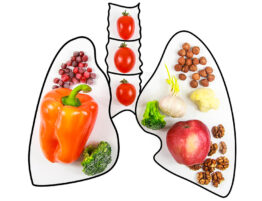
Being diagnosed with cancer can be a life altering event. Trying to understand the best way to manage this disease can be utterly overwhelming. The internet bombards us with conflicting information leaving most patients inundated with too much unnecessary knowledge. What treatment should I do? What food should I eat? Should I look into alternative treatments? It’s important to seek out professional advice from doctors, nutritionists and naturopaths. They can help you organize all the information presented and guide you through the process. As a nutritionist working with cancer patients the most effective diet we have worked with thus far, is the Ketogenic diet. Science and studies as well as putting it into practice has been proof enough that the KD diet can help slow down the growth of tumors in several types of cancer.
The ketogenic diet is a high fat, high protein diet that omits carbohydrate intake. Carbohydrates are usually at 2% or less of the daily intake. This causes our bodies to go into ketosis, in which the body is using fat as fuel instead of glucose from carbohydrates. How does this impact cancer? In simple terms, several studies have shown that cancer metabolizes carbohydrates for growth, by eliminating this food source from a patient’s diet the cancer has trouble surviving and thriving. It’s metabolic pathway for growth is interrupted and therefore tumor growth is difficult. Our healthy cells can utilize ketones in our body to fuel and thrive but cancer cells have a more difficult time. The ketogenic diet can be more impactful with some cancers than others. The KD diet has proven very effective with neoblastoma and nueroblastoma as well as breast, prostate, liver, colon, stomach and lung. Other studies have found the keto diet helps protect healthy cells against the impact of chemo and radiation, which means that most patients receiving conventional treatment will benefit from this diet. The side effects of a KD diet on patients is quite low. Usually patients will experience constipation or fatigue in the beginning.
The KD diet can be quite restrictive and most worry that they will not have enough variety. This is why it is helpful to meet with a professional to help guide you through the do’s and don’ts of a ketogenic diet.
Eliminating carbohydrates from a patient’s diet can prove tricky as sugar is extremely addictive and can cause strong cravings. A person on the KD diet will have to eliminate most fruits, as well as breads, pastas, and rice. The KD replaces these carbohydrates with adding high fat high protein foods such as nuts, meats, and oils. There are several cookbooks and guides available on what to cook and how to cook it to make it tasty and flavorful. After the initial cravings, patients will notice them decline over time until they subside. You can test if your body is in ketosis by a simple blood test or ketone strips that can be bought at health food stores or online. Once you test positive for ketosis you know that your body is using ketones as fuel, and that your cancer’s fuel supply is being compromised. Ketosis range should be between 1.5 to 3.0 m/mol for optimal results.
The Ketogenic diet is not a new concept or another fad diet. This form of food regimen has been around for more than 80 years and was first discovered as a way to ease the symptoms of epilepsy. As the world developed, so were medicines that would help epilepsy and this type of diet disappeared. It reemerged as a fad diet in the 90’s this time called the Atkins diet. Several people who were addicted to carbohydrates, eliminated them completely, and consequently became healthier and stronger. Unfortunately, this diet can be very restrictive and cause strong cravings, so most can only maintain living off of no carbohydrates for a very short time. More recently the atkins diet has been reintroduced into the diet crazed world as the ketogenic diet. Several have jumped on the bandwagon and seen great results. As a diet to lose weight the ketogenic diet can be a bit tricky as it is restrictive and very difficult to maintain, with little variety. But when a diet is medically proven to help fight disease, it’s important to take notice, especially if it can help reverse the rate of your cancer growth.
References:
https://www.sciencedirect.com/science/article/pii/S2212877819304272
https://link.springer.com/article/10.1186/1743-7075-8-54
https://www.ncbi.nlm.nih.gov/pmc/articles/PMC5842847/




